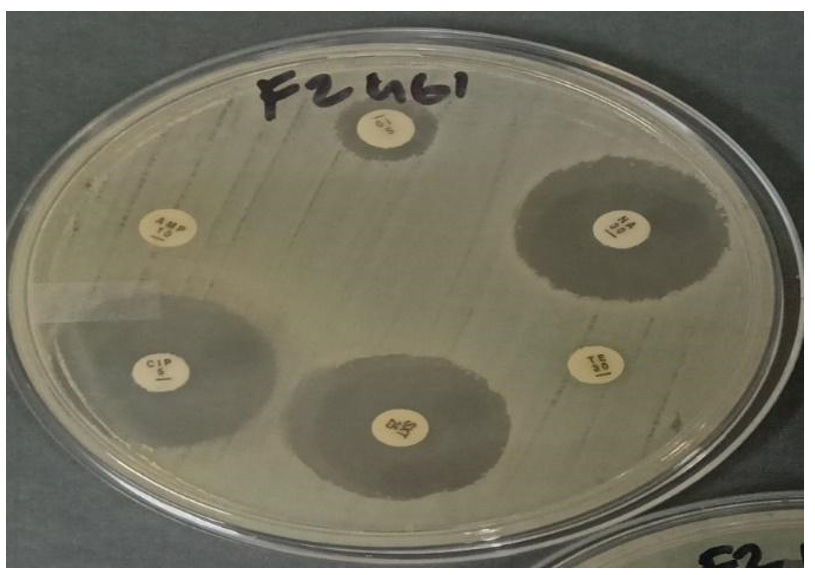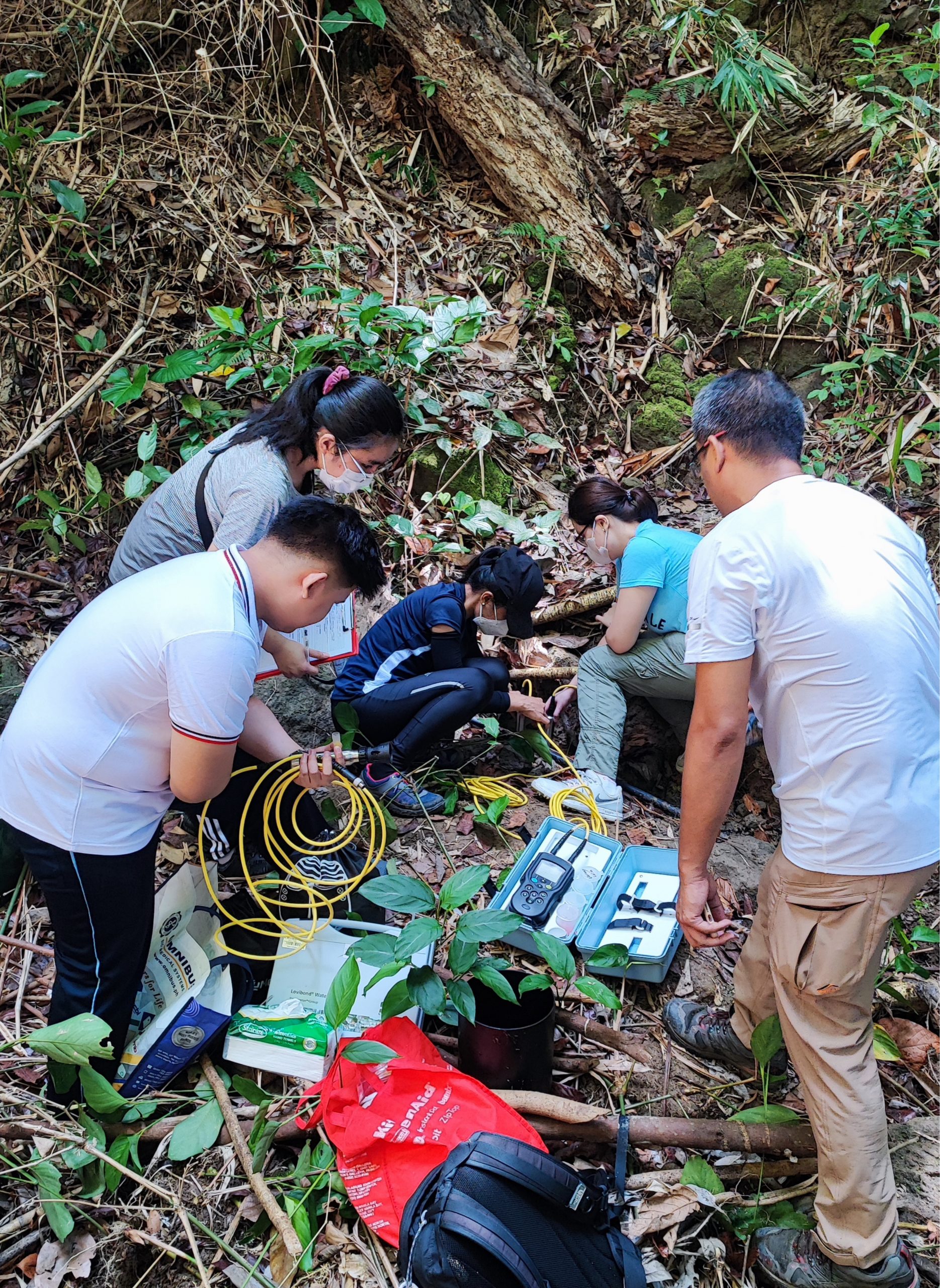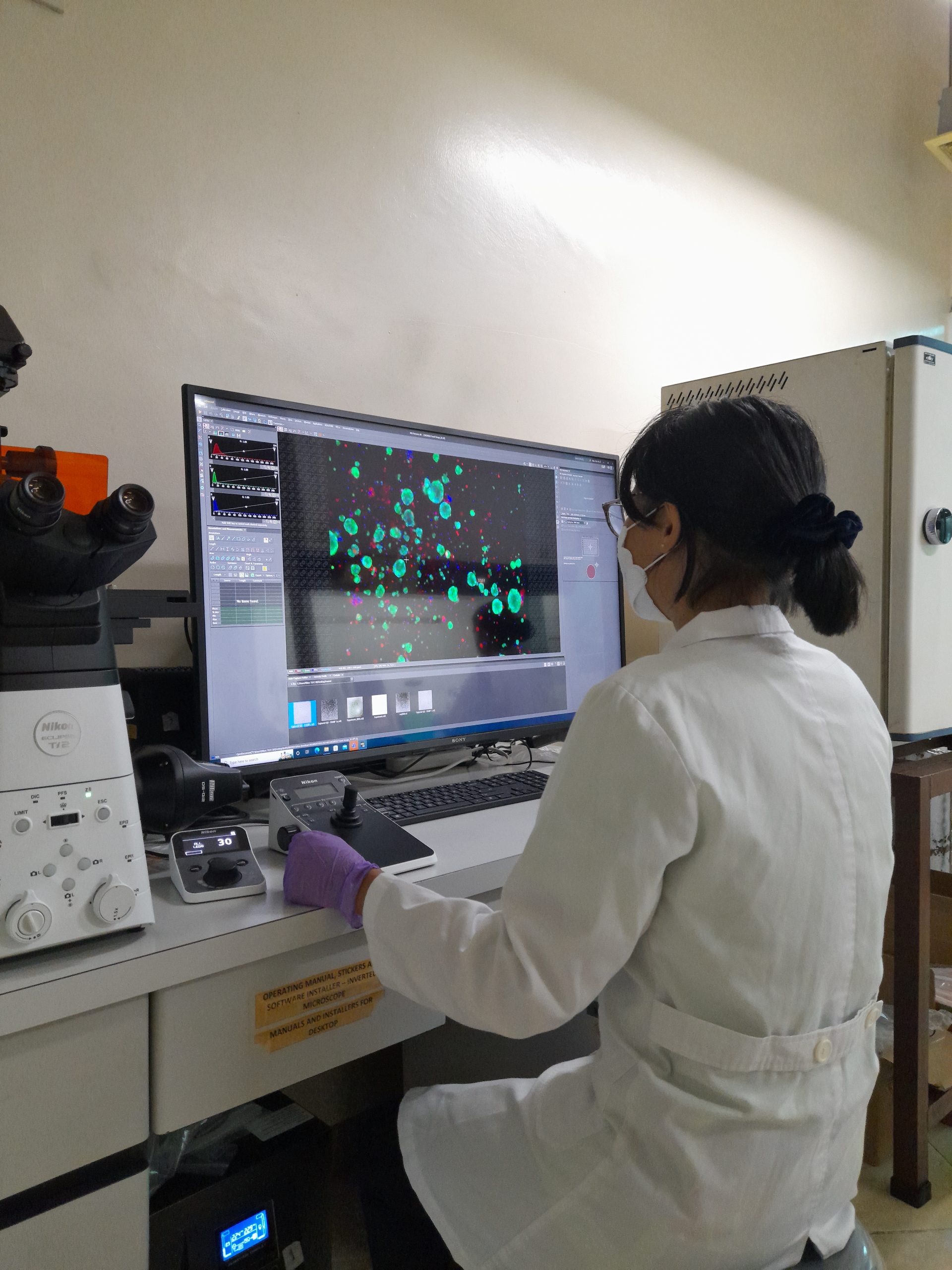News & Events
Escherichia coli (E. coli) is a common bacterium that lives in the intestines of animals and humans, and it is often used to identify fecal contamination within the environment. E. coli can also easily develop resistance to antibiotics, making it an ideal organism for testing antimicrobial resistance—especially in certain agricultural environments where fecal material is used as manure or wastewater is reused.
Groundwater—water trapped beneath the Earth's surface—is a resource that may be out of sight, but it is certainly not out of mind for many Filipinos. This invisible resource is vital for everyday life, especially in agriculture, where it provides the lifeblood for irrigation. However, as our demand for food grows and technology allows us to tap deeper into the Earth, groundwater faces an urgent crisis of over-extraction and contamination that demands immediate attention.
Scientists from the University of the Philippines – Diliman College of Science’s Institute of Chemistry (UPD-CS IC) have published a comprehensive analysis of existing techniques for detecting methanol—an industrial chemical highly toxic to humans—in lambanog, a popular traditional alcoholic beverage in the Philippines.
Sa Pilipinas, ang breast cancer ang pangunahing uri ng kanser sa kababaihan, na may mahigit 33,000 bagong kaso na naiulat noong 2022. Sa taon ding iyon, kumitil ito ng mahigit 11,000 buhay, kaya’t pumapangalawa sa lung cancer ang breast cancer sa sanhi ng pagkamatay sa bansa na may kinalaman sa cancer.
In the Philippines, breast cancer is the most common type of cancer among women, with over 33,000 new cases reported in 2022. That year, it claimed more than 11,000 lives, making it the second leading cause of cancer-related mortality in the country, following lung cancer.
Submarine groundwater discharge (SGD) is a process in which groundwater from land seeps into the ocean, transporting freshwater, nutrients, metals, and even pollutants into marine ecosystems. The diverse microbial communities in these SGD sites make them hotspots for biological and chemical activity, playing a crucial role in maintaining ecosystem balance. Studying these microorganisms helps scientists not only understand their impact on marine ecosystems, but also explore their potential applications in medicine and biotechnology.





